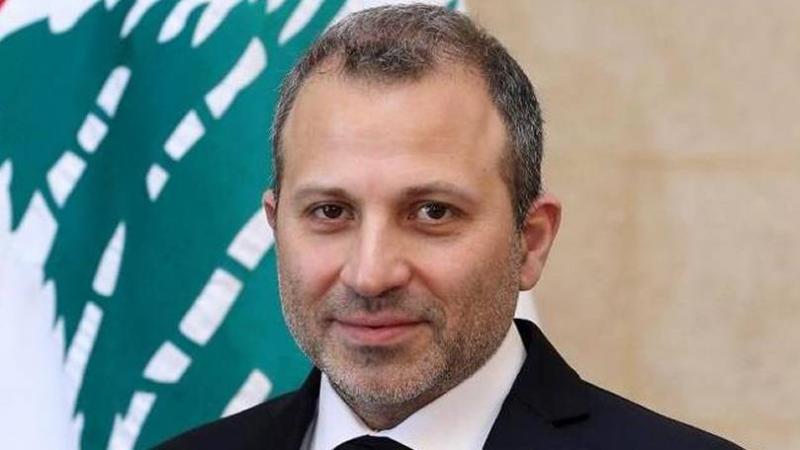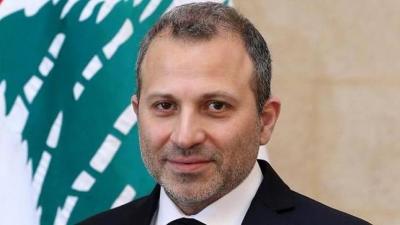The head of the "Free Patriotic Movement," MP Gibran Bassil, has launched an early battle to settle scores with the cadres and party members, blaming them for the failures suffered by the Orange Movement in several districts and labeling them as "traitors" who no longer have a place in his party. Bassil tweeted: "Accountability in the movement has become necessary at all levels; we cannot remain bound by the theory that we cannot lose anyone... because the cost of keeping some unaccountable has become greater than the cost of their departure."
This is not the first such measure in the movement, which has undergone three similar tests since 2006, following the split of General Issam Abu Jamra from the movement founded by General Michel Aoun after signing a memorandum of understanding with "Hezbollah" in 2006. The dissent within the movement grew after signing an agreement with "the Future Movement," which led to Aoun's presidency in 2016.
On August 27, 2015, Gibran Bassil was elected president of the Free Patriotic Movement. The first victims of this dissent were the founding group of the movement, which objected to Bassil's growing influence and leadership. Notable dissenters included Ziad Abis and Naim Aoun. Bassil swiftly expelled them from the movement in 2016, following a rise in dissent in 2019 triggered by popular protests in Beirut that opposed Bassil's political approach. In 2019, several leaders, including Ramzi Kanj, were expelled from the movement.
The dissent intensified ahead of the parliamentary elections, leading to the withdrawal of former MP Mario Aoun and the resignation of former MP Hikmat Dib. The movement reported a decline in its electoral base and lost two seats in Jezzine that it had long held, prompting Bassil to promise accountability.
Former Deputy Prime Minister Issam Abu Jamra expressed disbelief at Bassil's remarks and stated to "Asharq Al-Awsat": "If speech is silver, silence is golden, especially for one who lost his electoral battle." Abu Jamra pointed out that "the movement has had enough losses and disappointments due to Gibran's destructive policies, which have left him without friends in his movement and within the country, especially since his allies (referring to Hezbollah) have put away their weapons after the elections, and he must adhere to his limits."
Abu Jamra was the first to leave the ranks of the Aounist movement due to a deep-seated disagreement with Aoun regarding the management of the movement and participation in power. However, he now rejects the campaigns launched by Bassil against the cadres, holding them responsible for his failures. He considers his accusations "political defamation and an attempt to shift blame onto others," asserting that if he remains standing today, it is thanks to these individuals, and he should depart before threatening to expel them. Abu Jamra concluded: "The problem lies not with Gibran but with his uncle (President Michel Aoun); the error lies with the elder... not the younger one, who puffs up like a peacock whenever he faces a blow."
The ongoing campaign by the president of the Orange Movement against leaders and cadres is not perceived by some within the movement as a "settling of accounts," but rather as an evaluation of performance and a process of accountability. A party official clarified to "Asharq Al-Awsat" that "all political parties undergo review and self-accountability after every event."
The mitigating arguments for Bassil's stances failed to convince early dissenters. Political activist Naim Aoun stated that Gibran "lives in an illusion of power and boasts of a parliamentary bloc, half of whose members were not elected by Christian votes," stressing in a statement to "Asharq Al-Awsat" that he "is responsible for the issues that have befallen the movement without holding himself accountable, while placing the blame for its failures on others." He recalled the movement's former standing compared to its current state, noting: "Gibran's escalation is not a sign of strength, but rather a sign of fear of the near future, so he tries to compensate for his losses and failures with loud rhetoric," reminding that "in the 2005 elections, the Free Patriotic Movement represented 70 percent of Christians, while today it barely represents 20 or 22 percent."
Naim Aoun emphasized that "the foundations of building an institution are based on principle, organization, and strategy, but Gibran has built a single foundation based on authority and interests, leading to the collapse of his movement."
Naim Aoun, the nephew of President Michel Aoun who remained by his side during his exile in Paris, is currently one of the most vehement opponents of this movement and believes that "Lebanon is in a severe crisis, and all election winners need to extend their hands to save the country." He expressed disbelief that Gibran Bassil "has launched an attack on everyone without justification, which is clear evidence of his political bankruptcy, as when he had a bloc of 40 deputies and majority governments under his influence, he devoted all his efforts to the interests of this man and suffered a crushing defeat. What are the prospects for his success today in the final days of his reign and amid the collapse in Lebanon, of which he was one of the main causes?"
Naim Aoun warned of an extremely difficult period ahead, in which Gibran Bassil will gain no advantage, asserting that the head of the Free Patriotic Movement "gained his strength in recent years from the president’s signature, but after General Aoun exits the Baabda Palace, he will become the weakest." He summarized Bassil's escalation as "like someone walking in the night, frightened and whistling alone to comfort himself."




